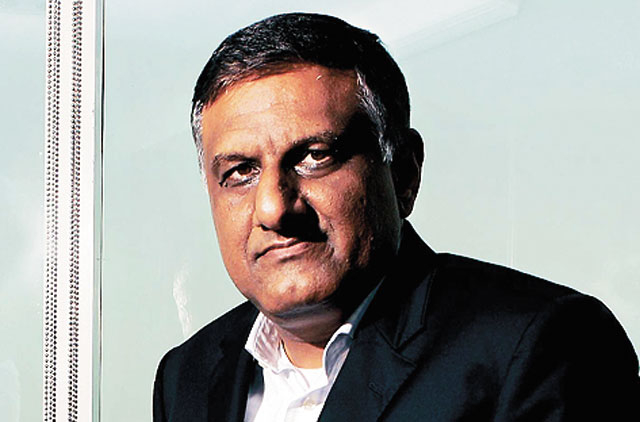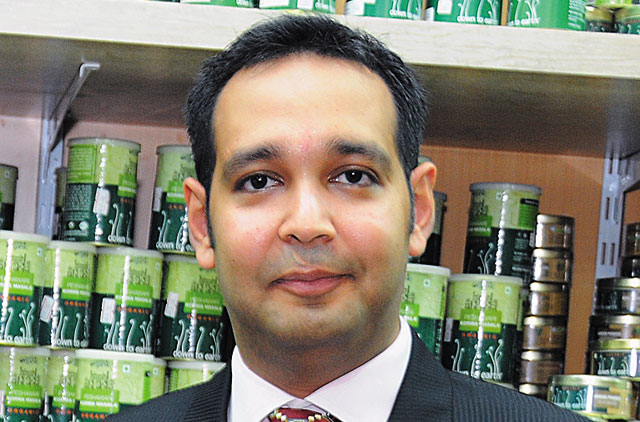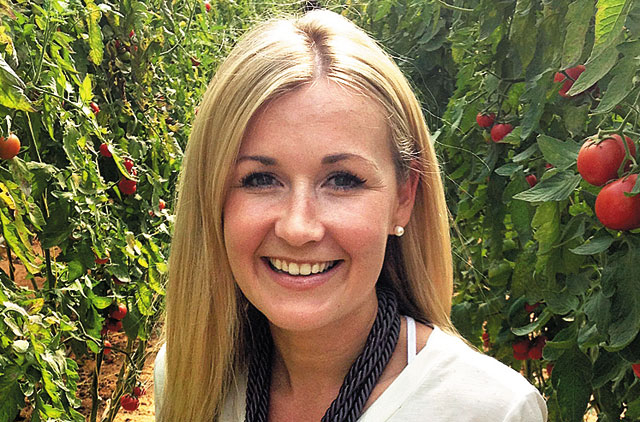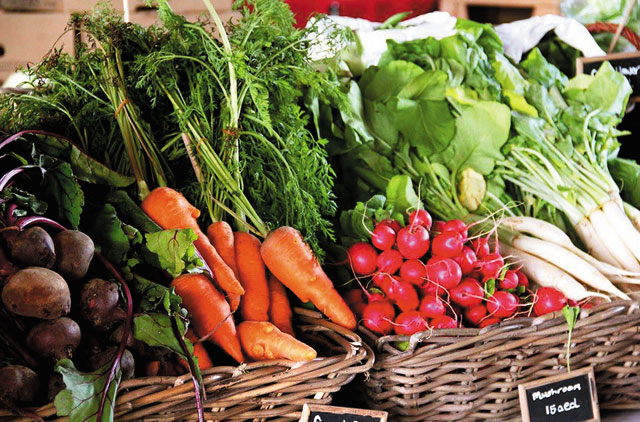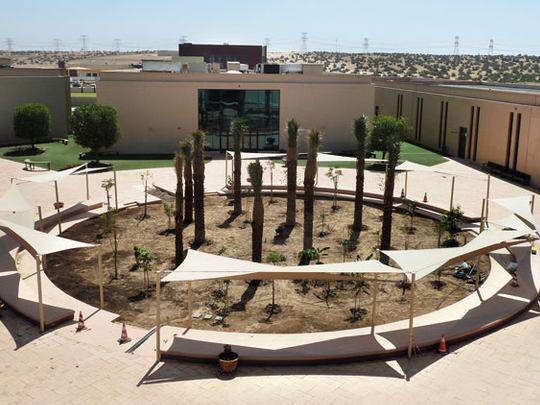
Start talking about ‘going organic’ or ‘being green’ while living in the desert and the arguments spring up like weeds around a leaking sprinkler. A conversation about the price of an organic tomato can end up with a discussion on food security and the cost of desalinating water to irrigate our farms.
This is not a subject for the faint-hearted, as the UAE has the third highest carbon footprint per person in the world behind Qatar and Kuwait. Perhaps because of this, there are many people looking at the quality of our food and lifestyle with a clear and steady gaze, and coming up with practical solutions.
According to statistics from the Ministry of Environment and Water, in 2010 the UAE had 13 organic farms – ones that do not use pesticides, hormones or antibiotics – and 23 more are being developed.
We have more and more shops and markets selling organic food, beauty products, clothing and cleaning materials as well as organic cafés, green initiatives and green building laws. Some organic businesses have come and gone, others are starting up, and along the way there has been a reality check about what it means to be a desert nation.
No one looks at the issue more clearly than Gundeep Singh, who almost a year ago launched The Change Initiative, a shop in which everything promotes sustainability, on Shaikh Zayed Road, Dubai.
“Four years ago I ran a wholesale business and decided to withdraw and sell only sustainable goods,” Gundeep says. “I want us to reduce our impact on the environment, until someone comes up with better answers. It is a flawed journey, and I’ve got a lot to learn. I’ve reached about 20 per cent change in my family lifestyle and still have about 80 per cent to go.
“We try to buy our food locally produced. We eat less, and more simply. I find the organic idea interesting, but it can be used as a fashion statement. Sometimes green or organic is used as a marketing tool, it doesn’t really mean anything. We like to mix and match.”
Gundeep, who is married with two young sons, now runs two hybrid cars – he used to own eight cars and a yacht, all of which he sold. At his home in Arabian Ranches, Dubai, he’s ripped out the baths and uses only showers, and has halved the water flow into the taps. His lighting is mostly powered by two small solar panels. He has painted the roof white to deflect the heat, cutting his air conditioning use by 5 per cent. All the furniture in his home is made from sustainable wood. And the list of eco-friendly measures he has taken goes on.
“The first step is easy, then the second, third, fourth get harder,” he says. “I came from a poor background and wanted to see and buy everything. I’ve used a significant proportion of the world’s resources, now it is time to give something back.”
Big ideas from small seeds
History teacher Gaina Dunsire knows that from small seeds big ideas can grow. In 2011 she started making the little garden at Dubai English Speaking College organic. “We were using chemical fertiliser and imported compost and I wondered what we were trying to achieve,” she says.
By December 2012 she was supplying the school canteen with tomatoes, rocket, Asian mix lettuce, green beans, basil, parsley, mint, coriander, okra and chillies.
Gaina’s challenge was creating good soil with compost from the school kitchen waste. “The canteen manager was very supportive,” she says. “We’ve had three cycles of crops in the year, and we’re creating heritage seeds that will be more and more productive in local conditions.”
Then she won the backing of the school governors to dig up the outdoor concrete amphitheatre that sat unused in the centre of the school and turn it into a desert forest garden. Planting is now well under way. “We’ll have date palms, pomegranate and fig trees, mulberry bushes, then come down to herbs growing on the forest floor,” she says.
She and the pupils sell plant food they make from their compost to parents, and the profit helps to fund the project. “We are all learning as we go,” she says. “We will be able to use the food forest to teach the children about local culture, the environment, history and science.”
Lokesh Aswani has spent four years developing his company, Down To Earth, a shop in Jumeirah that sells organically grown produce, either local or sourced from countries close to the UAE to reduce the carbon impact of shipping the foods.
Lokesh grew up in the UAE and says he has seen a change in farming in the region. “Pakistan, India, Saudi Arabia and Afghanistan are all working on ways to farm using less water, so the cost of going green should go down in the future,” he says.
“If we want to buy good food, we have to farm using good methods. All over the world it is difficult to feed a family organically. Whatever you can afford, do it. I think people can afford perhaps a 15 per cent difference in price, but much above that it becomes uneconomic,” he says.
“There is more maturity coming into the organic market here. However, people have forgotten the link between cooking and health. About 70 per cent of my customers are not the cooks in their household, and we have to find ways of educating the cooks.”
Ripe for the picking
Becky Balderstone, manager of Ripe, which sells seasonal, local and organic produce at farmers’ markets in Dubai and Abu Dhabi and at its shop in Umm Suqeim, Dubai, is mum to one-year-old Freya and pregnant with her second child.
She intends for her children to live as organically as possible. “My husband James and I favour organic over anything, but you can’t do that at all times,” she says. “Thankfully, there are a growing number of green companies in the UAE to make living organically easier.
“I feed Freya local, organic produce, and when she went on to formula, that was also organic. We can all do our bit by making small changes, such as using recyclable bags, cutting down on air conditioning and wasting less electricity by using sustainable light bulbs.”
Becky also believes that education is key, and her Raising with Ripe scheme, which is operating in five nurseries and schools in Dubai, helps children to raise funds they can spend on organic initiatives.
These champions of organic produce all agree it’s hard to be 100 per cent organic anywhere in the world, and being green is an especially hard slog in the desert. But gardener and teacher Gaina believes that good intentions are just the start. “It took me three months to find out where I can recycle glass bottles,” she says. “Now I’m trying to find whether the glass is actually recycled. It’s a question of wanting to do something, then never giving up.”


